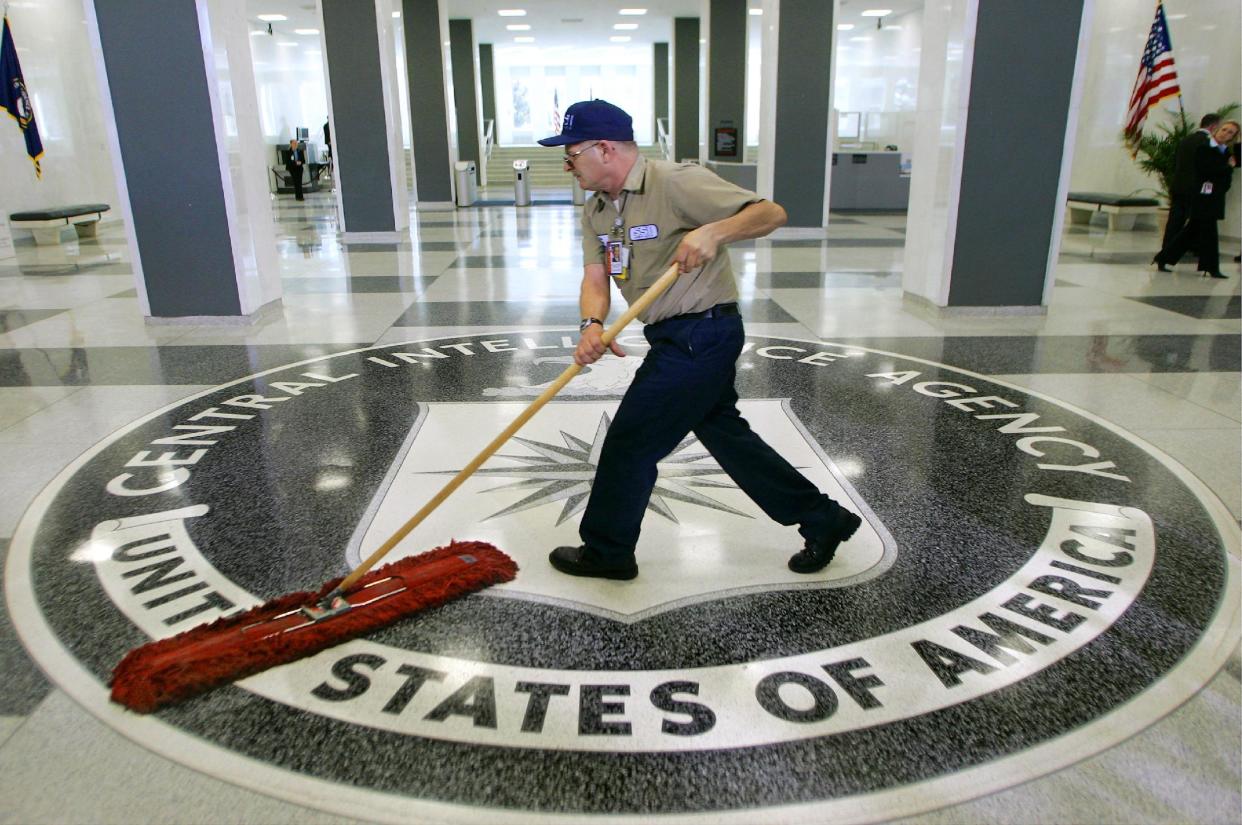Panel clears CIA officials accused of spying on Senate committee probing torture
Agency board finds no ‘malfeasance’; top Democrat decries lack of accountability

A CIA panel Wednesday cleared agency officials of any wrongdoing when they accessed the computers of a Senate committee investigating the agency’s involvement in torture. The finding ended a yearlong dispute marked by angry accusations of “hacking” and criminal misconduct.
Instead, the panel — whose members were appointed by CIA Director John Brennan — faulted the agency’s own outgoing inspector general for suggesting in a report that there may have been grounds to discipline five officials at the agency.
The findings by the so-called CIA accountability board drew sharp objections from some Senate staffers who were involved in the torture report, citing it as yet another example of the CIA’s own inability to police itself.
When briefed Wednesday morning by the accountability board’s chair, former Democratic Sen. Evan Bayh, and another of its members, former White House counsel Robert Bauer, the staffers complained about what they viewed as major factual inaccuracies and omissions in the panel’s report and asked them to forestall any public release, sources told Yahoo News.

But, after considering the staffers’ objections, Bayh and Bauer rejected them — and released a redacted version of the report through the agency’s public affairs office hours later.
“I’m disappointed that no one at the CIA will be held accountable,” said Sen. Dianne Feinstein, D-Calif., vice chair of the Senate Intelligence Committee, who had overseen the torture investigation.
Feinstein noted that Brennan himself had previously apologized for the actions of some CIA officials in the dispute.
“The decision was made to search committee computers, and someone should be found responsible for those actions,” Feinstein said in her statement.
But Bayh, in a statement, said the board found that no discipline was warranted for the five CIA employees — two of whom were lawyers — because “they acted reasonably under the complex and unprecedented circumstances.”
The dispute erupted last year when CIA officials grew concerned that Senate staffers conducting the torture investigation — and working out of a special office with a giant classified computer database in northern Virginia — had gotten access to a highly sensitive document: the so-called Panetta review, ordered in 2009 by then-director Leon Panetta into whether agency officials had been involved in abusive interrogations of terror suspects.
That review has never been made public, but sources familiar with it have said some of its findings were even more damning than the sharp criticism leveled against agency officials in the mammoth report released by the Senate Intelligence Committee last month.
The agency, for its part, has described the Panetta review as a “deliberative” draft document, covered by attorney-client privilege, and therefore one it had no obligation to turn over to the committee.
Alarmed by what it viewed as a potentially criminal “security breach,” Brennan ordered agency officials to get to the bottom of what happened. This led to an investigation by the CIA Office of Security’s “Cyber Blue Team,” according to the panel’s report.
In the course of this investigation, the agency’s cyber investigators got internal access to the Senate computers — including five staffers’ emails to which they were not entitled. Bayh in his statement said the accessing of Senate emails was “clearly inappropriate,” but said it was “a mistake that did not reflect malfeasance, bad faith, or the intention to gain improper access” to confidential Senate material.
A source familiar with the accountability board’s deliberations said the emails in question were merely “transmittal” documents and were not significant.
After investigating the incident, the CIA inspector general, David Buckley, referred the matter to the Justice Department for potential violations by agency officials of two federal laws: the Wiretap Act and the Computer Fraud and Abuse Act. (The Justice Department has since declined to prosecute.)
Buckley, who announced his resignation last month, also recommended that the accountability board be appointed to review possible discipline of the employees, concluding that some of them had displayed a “lack of candor” to his investigators in the course of his review.
But the accountability board headed by Bayh and Bauer rejected nearly every finding by the inspector general. It concluded that there was “no basis” for the Justice Department referral, noting that one of the officials who oversaw the matter “reasonably believed” he was acting under the authority of Brennan himself and that the director had cautioned against intruding on the Senate’s internal work product.

The board also found there was no basis for the charges against the officials for showing a lack of candor, noting that the inspector general's office did not record its interviews with the officials or keep a record of the questions it had asked them.
Among the panel’s recommendations were that the inspector general keep “more complete records of interviews.”
A CIA spokesman said that Buckley, who is departing at the end of the month, “is currently traveling and not available for comment.” The spokesman said that he is resigning to pursue “an opportunity in the private sector” and that his decision to do so “is unrelated to this matter.”




